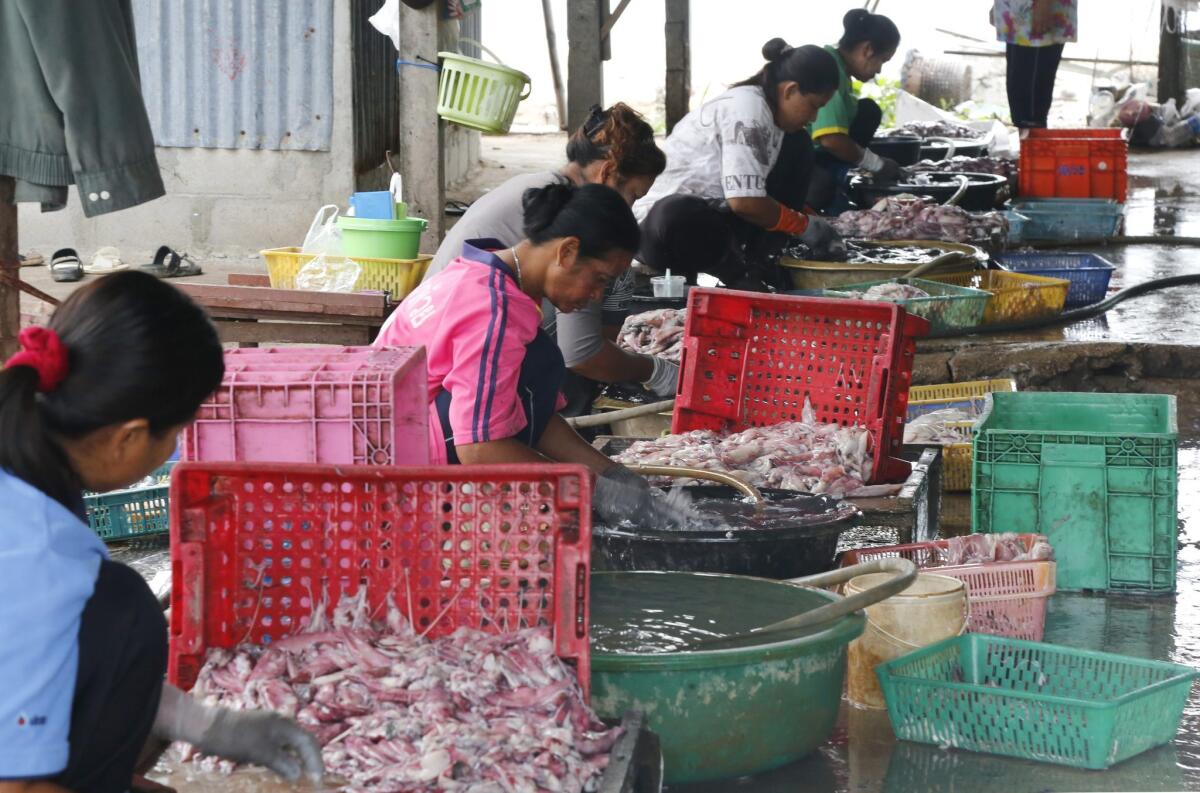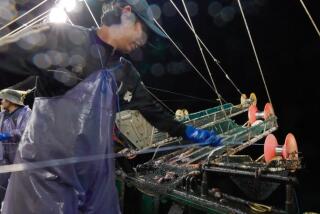Editorial: Taking Thailand to task for high-seas slavery

Sometimes it can be hard to see the connections between human rights violations in far-off places and how we live our daily lives. But if you go to your freezer and find Charoen Pokphand (CP) Foods’ frozen shrimp products bought at Costco, Wal-Mart or other major retailers, chances are good you’ll see the end of a food supply chain that began with slave-staffed ships registered in Thailand.
The Guardian newspaper recently uncovered a high-seas slavery system in which human traffickers lure workers from poor Southeast Asian countries with promises of jobs in Thailand. Instead, the smugglers sell the laborers to ship captains, who force them to harvest fish to be ground into meal and sold as feed to shrimp farms whose products ultimately end up in consumers’ kitchens.
On Friday, the State Department took a step to combat this practice, as well as sex trafficking and other human rights abuses, by demoting Thailand to the lowest of four tiers in its Trafficking in Persons report, an annual update that assesses how well 188 nations adhere to the U.S. Victims of Trafficking and Violence Protection Act (there are 23 in the lowest tier in the current report). The demotion, after several years of warnings, opens Thailand to sanctions that could limit its access to some U.S. aid as well as financial help from the International Monetary Fund and the World Bank.
The problem is not new, nor Thailand’s alone; slavery on the high seas occurs around the globe. Solutions, though, are hard to find. Pressure the corporations that profit? Officials for the fish-meal-buying CP Foods argue, with some merit, that there is little they can do because they don’t know which of the ships arriving at the docks are manned by slaves.
Government oversight and intervention could make a difference. But in Thailand, the government is part of the problem, with lax enforcement of labor laws and rampant bribery of port and border police, among other acts of collusion. The recent military coup adds a fresh complication, creating a labor shortage as rumors of a crackdown on undocumented migrants have sent tens of thousands back to their home countries.
Human trafficking is a difficult issue to resolve, and Thailand is by no means the only nation with culpability. That any consumer can reach into the freezer and touch slavery makes others complicit in the process, even if unwittingly. Only sustained international action will curb trafficking; the State Department is right to call the Thai government to task, and it should continue to press the case.
More to Read
A cure for the common opinion
Get thought-provoking perspectives with our weekly newsletter.
You may occasionally receive promotional content from the Los Angeles Times.










